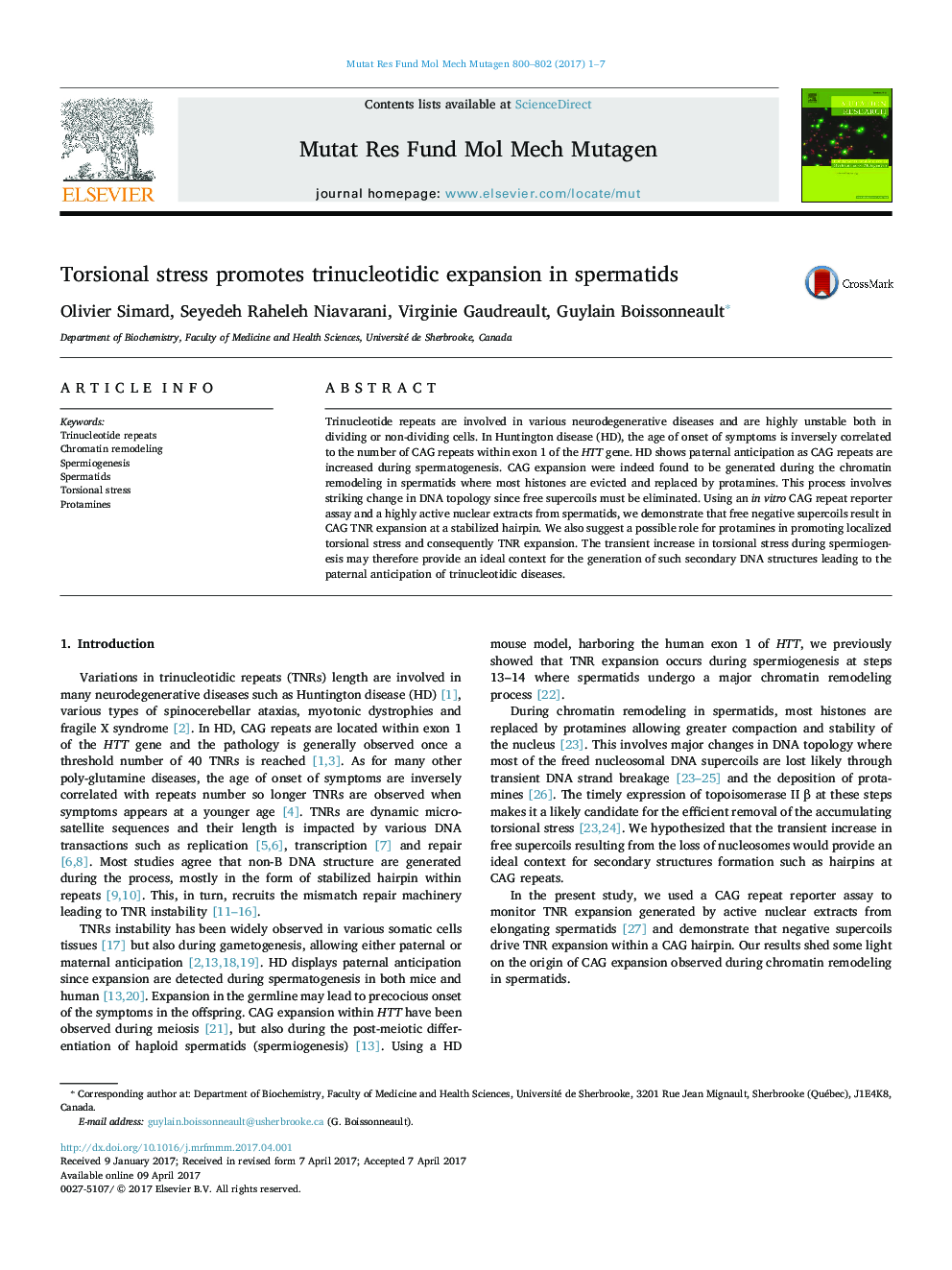| Article ID | Journal | Published Year | Pages | File Type |
|---|---|---|---|---|
| 5528704 | Mutation Research/Fundamental and Molecular Mechanisms of Mutagenesis | 2017 | 7 Pages |
â¢Free negative supercoils induce secondary structures in trinucleotidic repeats.â¢Torsional stress may promote trinucleotidic expansion in spermatids' nuclear extracts.â¢Protamines binding promotes trinucleotidic expansion.
Trinucleotide repeats are involved in various neurodegenerative diseases and are highly unstable both in dividing or non-dividing cells. In Huntington disease (HD), the age of onset of symptoms is inversely correlated to the number of CAG repeats within exon 1 of the HTT gene. HD shows paternal anticipation as CAG repeats are increased during spermatogenesis. CAG expansion were indeed found to be generated during the chromatin remodeling in spermatids where most histones are evicted and replaced by protamines. This process involves striking change in DNA topology since free supercoils must be eliminated. Using an in vitro CAG repeat reporter assay and a highly active nuclear extracts from spermatids, we demonstrate that free negative supercoils result in CAG TNR expansion at a stabilized hairpin. We also suggest a possible role for protamines in promoting localized torsional stress and consequently TNR expansion. The transient increase in torsional stress during spermiogenesis may therefore provide an ideal context for the generation of such secondary DNA structures leading to the paternal anticipation of trinucleotidic diseases.
